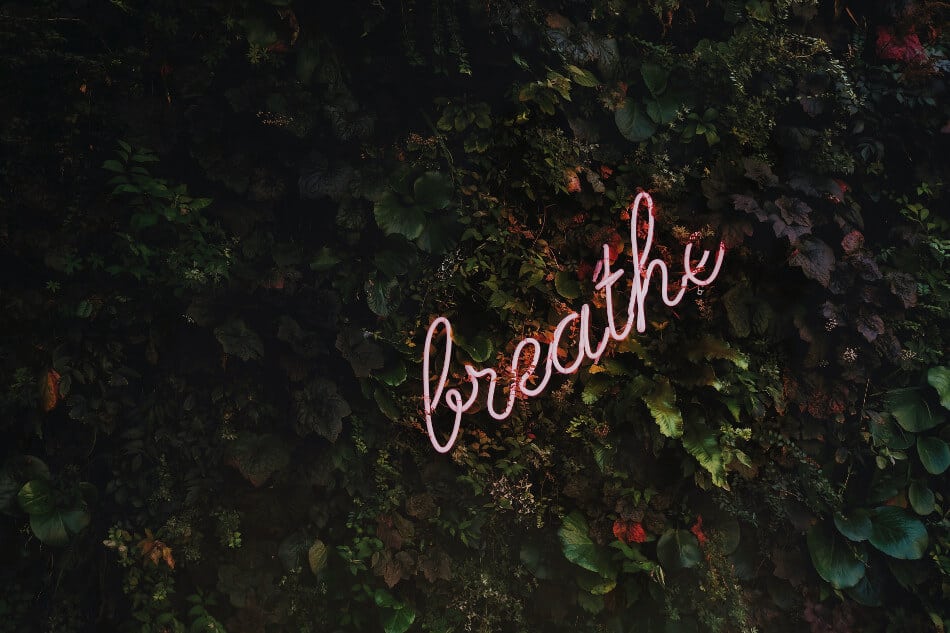Buzzwords such as ‘stay home’ and (even more recently) ‘stay alert’ have sparked off their very own movements in recent months.
This aside, how are people coping psychologically amid the pandemic and crucially, how can they manage their mental health during this unprecedented time?
Origin of Pandemics
The Spanish flu that erupted in 1918 killed 50 million people worldwide with similar parallels to the Coronavirus. At its peak, 1,200 people died each day from the Spanish Flu and populations were also a lot smaller a century ago.
Interestingly, how people ‘coped’ back then is similar to how many of us are coping now. Self-isolation booths in 1918 may not have been as high-tech as they are today, however, quarantine rules were strictly imposed on a global level as was social distancing, rationing and panic buying.
The difference between history and what’s happening today largely boils down to two things: technology and mental health awareness (and in the case of the Spanish flu lack thereof).
Technology

If we were to draw any positives from the Coronavirus, it would probably be the advancement of technology and scientific research methods.
Essentially, technology has the power to create awareness and as we’ve been taught many times before: awareness saves lives. Unfortunately, since science and medicine were vastly underdeveloped in the 1918’s, medical professionals simply didn’t have the tools to develop a vaccine to treat the virus.
Not forgetting the lessons that can be learned from history. And although most of us had never heard of the terms ‘social distancing’ and ‘self -isolation’ pre-Covid19, it doesn’t mean that they didn’t exist. Equally, being privy to past knowledge puts us in a stronger position as we have something to draw on.
Mental Health
Another important factor when it comes to pandemic survival is the role it plays in mental health.
Decades ago the stigma attached to mental health was much stronger than it is today. And research into the Spanish Flu pandemic shows just how deprived mental health initiatives were back then.
Historical demographer, Svenn -Erik Mamelund, PhD, conducted research into asylum hospitalizations in Norway from 1872- 1929. The study found that the number of first-time hospitalized patients experiencing mental disorders attributed to influenza increased by an average yearly factor of 7.2 in the 6 years after the pandemic.
Mamelund reported that Spanish flu survivors experienced sleep disturbance, mental distraction, dizziness and an inability to concentrate at work. Many also reported feelings of depression and anxiety, and in the years between 1918-1920, the US suicide rates were positively and significantly related to the Spanish flu pandemic.
Fortunately, support and awareness surrounding mental health issues have drastically improved with the emergence of rehabilitation treatment centres and movements such as Mind and Alcoholics Anonymous (AA).
If history teaches us anything at all, it is the lessons we can learn from the past, including what to do (and crucially what not to do) amid a global pandemic.
Grief and the role it plays during a pandemic
With the world currently experiencing varying levels of grief, it’s important that mental health professionals continue to spread the message surrounding grief and the many ways it manifests.
The unfortunate death toll that has emerged because of Covid-19 is devastating and has triggered it’s very own grief pandemic. Grief has always been somewhat of a taboo subject. Although when one experiences the death of a loved one, it is expected for them to go through the grieving process. But what about grief that is spurred on by a pandemic?
There are many levels to grief and how one copes is subjective to the individual. Some might turn to substance addiction as a way of coping, while others perhaps turn to other forms of self- destructive behaviour. Grief recovery experts define grief as being:
‘’The normal and natural emotional reaction to loss or change of any kind.’’
If the above statement has any truth to it, the dramatic changes the pandemic has brought to our lives means that we are all grieving to some degree. Ever since the Coronavirus, rehabilitation centres have reported concerns particularly for patients in recovery from addiction.
Recovery from addiction largely involves a connection with others and sharing challenges with people who understand. Experts have become increasingly concerned about the impact that isolation will have on patients and their recovery.
The World Health Organisation (WHO) recently reported an increase in alcohol use as a coping mechanism during the Coronavirus lockdown, and have labelled it an ‘unhelpful coping strategy’. Relying on alcohol to curb anxiety and cabin fever ‘’can only make things worse’’.
There are several ways in which people can effectively manage stress and anxiety during lockdown which include:
Sticking to a routine

Routine is essential to our daily lives. It provides us with structure and purpose and helps us to keep things in order.
For those working from home, it can be tempting to opt for a more relaxed routine, such as getting up late or lounging around in your pyjamas for half the day, but this can quickly turn into a vicious cycle.
The best advice is to follow a similar routine from the pre-quarantine days: get up early, shower, eat breakfast and do some exercise (if possible).
Since Covid-19, peoples’ lives have been thrown into disarray and sticking to a routine provides a bit of structure, it also helps to minimise a ‘fear of the unknown’. The more predictable your daily schedule is, the less likely you are to feel anxious.
This is especially true for those in addiction recovery too, as they can continue (as much as possible) to practise the principles learned from the 12 – step recovery program.
Using positive affirmations
The language people use and their inner dialogue is an important aspect of mental health.
When it comes to lockdown if we consciously affirm: ‘’I’m enjoying being at home and doing all the things I couldn’t do before’’ instead of ‘’I am isolated indoors’’ it’s likely that over time, your brain will start to respond to the positive narrative it’s being fed.
Almost like ‘rewiring’ the brain, the use of positive language is a very powerful tool in the management of anxiety and stress.
Those that suffer from anxiety attacks are often advised to use positive affirmations in order to control their breathing during an attack and this approach usually works on both a physiological and emotional level.
Minimising chaos

Lately, the outside world has served us with enough chaos to last a lifetime, it’s important then, that we keep our home environment as chaos-free as possible.
This might prove more challenging to those who have children, but maintaining a calm environment when everything else seems out of control, allows us to put specific techniques into practice such as taking up home yoga or meditation.
Essentially, being able to shut the front door and step into a calm, tranquil environment will work wonders in the minimisation of stress – meaning that people are less likely to turn to unhealthy coping mechanisms such as alcohol and other substances.
Limiting news exposure
While it’s important to know what is going on in the world, excessive news coverage, especially at the current time, will only add to peoples’ stress and anxiety levels.
The advice would be to stay informed about any changes in rules and the pandemic in general, but not to the point where you are excessively news watching or reading about the pandemic on social media.
Too much negative exposure can create nervous tension within the body and what happens when people become overly nervous? They turn to ‘something’ like alcohol to get rid of the anxiety. A good rule of thumb would be for people to minimise any news exposure to once a day.
Staying Connected
Those who happen to be isolating alone are more at risk of anxiety and feelings of loneliness mental health experts advise.
Long-term disconnectedness from others can often lead to self-destructive behaviour such as excessive drinking, smoking and other forms of addiction. That’s why staying connected to family and friends is important during this time.
Fortunately, with social platforms like Zoom, Webex and other messaging apps it’s a whole lot easier for people to stay connected compared to a century ago.
Interestingly, recent research has shown that those who are isolated with family members and partners are also at risk of loneliness regardless of sharing a household with others. For those people, checking in with themselves regularly and staying connected to people outside the house-hold can be extremely cathartic, especially when cabin fever starts to kick in.
Being Active

The benefits of physical exercise are endless. Mainly because exercise helps to:
- Control weight
- Reduce the risk of heart disease
- Decrease blood sugar and insulin levels in the body
- Improve mood and mental health
- Combat insomnia
Regular exercise can have a positive profound effect on anxiety, depression and other mental health disorders such as ADHD and the reasons for this are limitless:
- Exercise promotes positive changes in the brain such as neural growth. It also reduces inflammation and creates new activity patterns that promote feelings of relaxation and well-being
- It releases endorphins, which are powerful chemicals in the brain that revitalise the spirit making you feel good
- Serves as a temporary distraction from negative feelings and breaks the cycle that feeds depression
Seeking help
Feeling overwhelmed at times is part and parcel of being human. But when things seem unmanageable or you feel as though you can no longer cope, then it might be time to seek help from a professional.
There are plenty of mental health organisations out there and whichever one you decide on, will depend largely on where you live and your symptoms. An individual might be offered tailored therapy or something more intense.
If someone is living with high-functioning anxiety, for example, they might demonstrate a range of symptoms such as: controlling or strict behaviour, perfectionism and the need to over-achieve all of which mask underlying anxiety.
Often people tend to ‘accept’ anxiety as a way of life, but fortunately, it doesn’t have to be this way.
Rehabilitation centres offer a variety of treatments designed to help people manage stress and anxiety through specific therapy packages and wellness programs.
At White River Manor we believe that anxiety doesn’t have to be a way of life and there is help and support available. Want to find out how we can help? Then contact our team of experts today.

